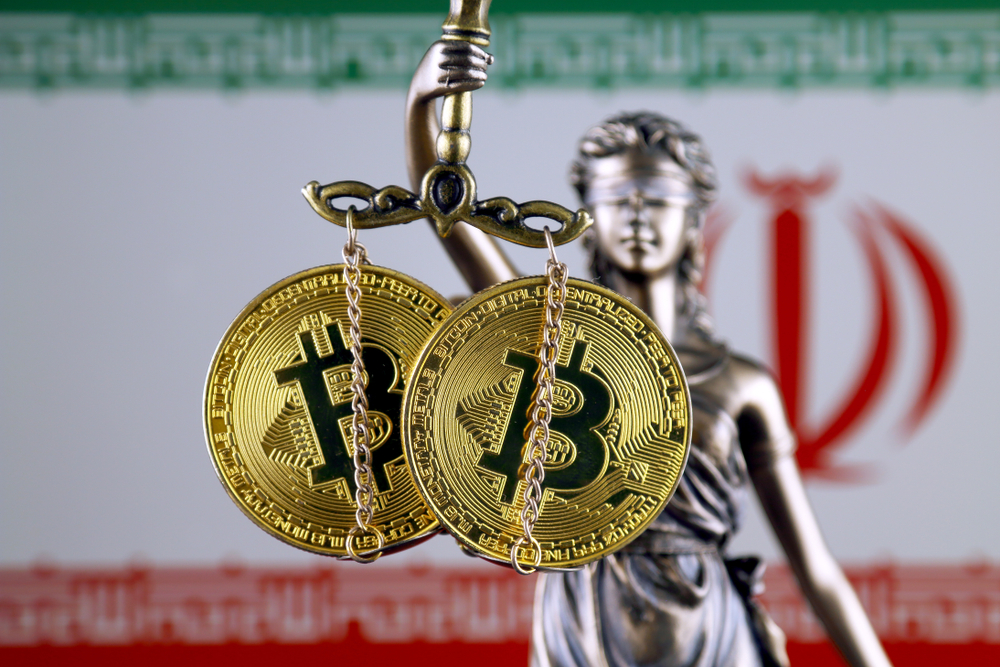Iran Moves to Limit Crypto Exchanges Under’ Money Smuggling’ Laws

The government announced a proposal this week to incorporate cryptocurrency in existing “currency bootlegging” and international currency exchange controls, according to Iranian news outlet ArzDigital.
The outcome of this prospect regulation is Iranian businesspeople face an increased risk of being imprisoned by political authorities or sanctioned by Americans. The law would mean that the Central Bank of Iran must authorize the Iranian crypto exchanges and support legacy international currency exchange guidelines.
However, it’s not clear how current transactions should implement for licensing or accommodate those fiat measures to blockchain technology. What is clear is the Iranian government is seeing to destroy capital outflow by preemptively defending any moves to lock down or punish bounded crypto exchanges.
Iranian Market
Nevertheless, the Iranian market doesn’t rigorously consist of homegrown, over-the-counter salespeople. Unlike fiat currency markets, various crypto transactions serving Iran are professionally based in other countries. It is unclear how the current licensing administration regards to decentralized ecosystems.
The Binance-owned analytics site CoinMarketCap, formally based in the US state of Delaware, noted the KingMoney token in Q1 2020. There were no evident red flags that occurred throughout the administration process, CoinMarketCap CSO Carylyne Chan said.
The crypto trade UtByte and the KingMoney token plan both arrive to be recorded in Sweden under an umbrella firm named Sweden Invest Group AB, begun by Swedish-Iranian businessman Reza Khelili Dylami.
Some Farsi blogs identified both these projects as a unified “scam.” Regardless, it was sold to Iranians for cross-border purchases. UtByte has gained about $13.8 million of BTC and has secure transactional attachments to Iranian cryptocurrency services and exchanges, according to Chainalysis.
American’s Interest in Iran
The Trump government made the right choice to focus on the Iranians use of cryptocurrency to circumnavigate sanctions since, in the future, cryptocurrency is a possible way of avoiding penalties when recorded and registered with the Central Bank of Iran.
In contrast, even cryptocurrency plans that are entirely based in Iran usually benefit from global social media efforts. Over the past weekend, Tron founder Justin Sun supported Iranian crypto exchange operators like Cryptoland on Twitter.
Crypto land co-founder Hassan Golmohammadi said that the firm is professionally located outside of Iran but performs locally. When asked about Cryptoland in January 2020, a press delegate for the Tron team noted that it does not immediately work with the Iranian company.
Read Also:

Bitcoin Crosses $10,000 Mark, Then Tumbles Back Down Again
Bitcoin recently made quite a rally after hitting the $10,000 in the market, only to…

As Coronavirus Pandemic Surges, So Does Cryptocurrency Wallet BRD’s downloads
With more than half of the world in lockdown due to the coronavirus pandemic, people…

Supercomputer Hacking Frequents in Europe Due to Crypto Mining
Several supercomputers were infected with cryptocurrency mining malware across Europe this week. The infected supercomputers…

Industry Experts Warn About Russia’s Crypto Iron Curtain
Russia’s cryptocurrency industry is fighting against a number of legislations that will it difficult for…

The Future of Healthcare is Blockchain
With majority of the world reeling to the effects of the coronavirus pandemic, tech and…

Bank of Russia Mortgage Issuance May Soon Adopt Blockchain Technology
Blockchain technology is widely praised for its security and redundancy features. Because of this, the…